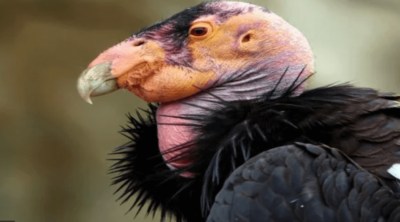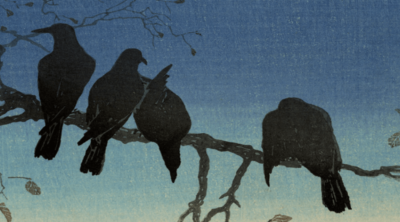
It is the cheerful sound of your pet lovebirds chirping away to morning’s glory that wakes you up in the morning. You happen to notice that one morning the birds aren’t chirping. Is it a sign that your birds have taken ill? Read this BirdEden article to find out.
In the wild, sick birds try to hide their illness in order to save themselves from their predators, as sick birds can be targeted easily.
Just like birds in the wild, pet birds too, instinctively don’t exhibit any signs of illnesses, and try to hide their discomfort. But careful observation of subtle physical or behavioral changes can point out a disability that the bird is suffering from. This list keeps you educated and informed about signs and symptoms of illness in birds; refer to it so that you recognize the signs in time, and take immediate action. An illness detected in the earlier stages and nipped in the bud is better off than a major injury or illness that could entail other serious health issues, or even prove to be fatal. Also, if you discover your pet bird exhibiting a serious symptom, it is advised you take it to a vet immediately.
|
Serious Signs of Illness in Birds
|
Unusual or Abnormal Droppings
One of the first signs of an illness in a bird is the change or alteration in the color, consistency, or quantity of droppings. Although the color will vary according to the kind of food you feed your bird, it can also indicate the presence of disorders of the kidneys or bowel. Excessive urination could indicate diabetes, whole pieces of grains in the droppings could indicate a defect in the functioning of the bowel or digestive system, whereas, a change in the color of the droppings could indicate deficiency of essential nutrients. Constant evaluation of droppings under normal circumstances, lining up the insides of the cage with paper towels or paper napkins to measure the volume, consistency, and color change of the droppings can help you detect changes faster and in a better manner.
Reduced or Loss of Appetite
The metabolic rate of birds is extremely high, and to keep up with it, it is extremely important that they are fed on time, and receive their daily dose of nutrition. If your bird refuses to eat or eats lesser food than what it normally does, it could indicate that the bird suffers from impaction or a blockage in the digestive or intestinal tract. This disorder could have serious repercussions on the bird’s health, and could become fatal if not attended to in time.
Changes in Sleeping Patterns
A healthy bird would normally sleep atop its perch on one foot, with its head tucked under its wing. If the bird is found sleeping on both feet at the bottom of the cage, it indicates the bird is too weak to fly up to its perch. Excessive sleeping is also a sign of weakness or illness in birds.
Dull or Ruffled Feathers
Dull or ruffled feathers could result due to constant chewing or pulling of the feathers. If a bird is found to pull and pluck at feathers only from a particular area of its body, it could be an indication of a physical injury or internal discomfort in or around that part of the body. Discoloration of the feathers could be the result of skin infections or metabolic problems. A part of the bird’s body that appears bald, when instead it should be covered in feathers, is never normal, and requires immediate medical attention.
Abnormal Skin
A healthy bird can be recognized by the brightness of its feathers, and the shine of its coat. Redness of the skin, abnormal growths around the eyes or mouth, unusual or lumpy eruptions on the skin, and sticky feathers are all characteristics of an unhealthy and sick bird. Broken and tattered feathers, pigmentation of the skin, and lesions under the feet or wings of the bird are grave signs of illness, and demand immediate medical action.
It is your responsibility to watch out for insidious signs, and keep a check on your bird’s health. Don’t hesitate, waste time, or postpone your bird’s health issues, and visit the vet as soon as possible.


